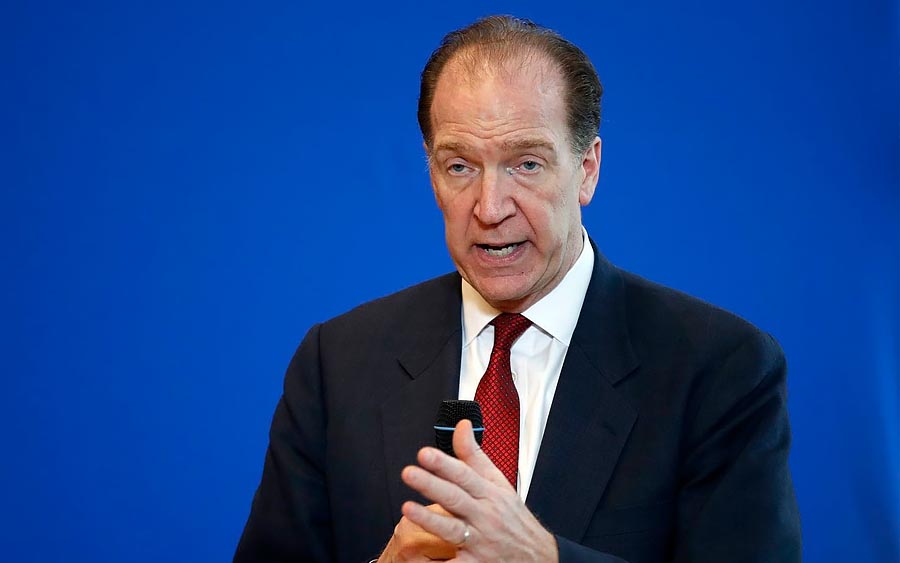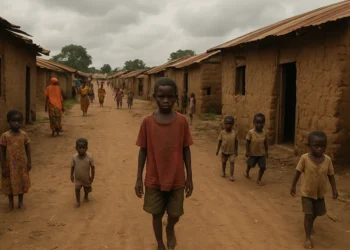Key highlights:
- World Bank said it expects a slowdown to about 3.1 per cent in 2023 from 4.1 per cent in 2022.
- Slow growth will persist for years for many developing countries, increasing fiscal stress and debt problems
- Nigeria’s economy will be driven by the non-oil sector as oil production is projected to remain subdued in 2023 and is set to grow by 2.8% in 2023
The World Bank Group has forecast that growth in developing countries will slow down to 3.1% in 2023.
This was disclosed by the World Bank President, David Malpass, during the Spring Meetings 2023 Media Call.
Malpass blamed the forecast decline on rising energy prices and recent banking stresses which he said will dampen activities. This is coming after the World Bank Group declared in its Africa Pulse Report that Nigeria’s economy will be driven by the non-oil sector as oil production is projected to remain subdued in 2023 due to several factors.
More about the factors
The World Bank Chief noted that the cost of oil per barrel has risen above 80 dollars. Also, there is a decrease in activities due to banking sector stress, and persistent inflation pressures. He said:
- “Oil prices have jumped back above 80 dollars/barrel. The recent banking sector stress dampens activities and inflation pressures persist.
- “If we look at developing countries excluding China, we expect a slowdown to about 3.1 per cent in 2023 from 4.1 per cent in 2022.
- “The concern in our recent reports is that slow growth will persist for years for many developing countries, increasing the fiscal stress and debt problems.
- “It is a combination of weak investment, higher interest rates, and relatively weak growth in the advanced economies.’’
Impact of inflation
He warned that slow growth is influenced by inflation, currency depreciation, rising debt service costs, and the collapse of international reserves, adding:
- “These problems are severely constraining future growth and deepening inequality and fragility for developing countries.
- “I travelled to West Africa in March, where we are working to provide support in the face of these problems.
- “Looking at the big picture, I will mention two problems, first, the normalisation of interest rates after an artificial decade near zero.
Duration mismatch
Malpass added duration mismatch will take time to digest. with inflation persistent and the dollar weakening, the risk is that the losses will be allocated to those with lower incomes, including through inflation.
He also noted that the second major problem was that the available global capital was being absorbed by a narrow group of advanced economies that have extremely high government debt levels.
- “I will call them sinkholes. To make matters worse, their populations are ageing rapidly and the peace dividend of the 1990s was used up.’’
- “However, the likelihood is a long period of slow growth, asset reprising, and capital moving in the wrong direction.
- “Moving toward a narrow group of governments and big corporations rather than to the small businesses and working capital that could add to global growth.’’
He praised the stability of China’s currency and the countercyclical nature of its monetary policy, adding that China is encouraging growth in services, especially healthcare and tourism.’’
Nigerian trajectory
Recall Nairametrics reported earlier that in its April 2023 Africa’s Pulse report, the World Bank said that Nigeria’s economy will be driven by the non-oil sector as oil production is projected to remain subdued in 2023 due to several factors.
More details from the report
The report, which is an analysis of issues, shaping Africa’s economic future, stated that the Nigerian economy is set to grow by 2.8% in 2023, down from 3.3% in 2022, while oil production will remain subdued in 2023. A part of the report read:
- “The Nigerian economy is set to grow by 2.8% in 2023, down from 3.3% in 2022. It is expected to accelerate slightly to an average annual rate of 3% in 2024–25. This translates into growth per capita of 0.2% in 2023 and 0.4% in 2024–25, which is insufficient to reduce extreme poverty in the country.
- “Growth will continue to be driven by services, trade, construction, manufacturing, and agriculture. Oil production is projected to remain subdued in 2023, because of inefficiencies and insecurity, and recover slightly in 2024– 25. On the production side, growth in 2023 will be supported by industry (with a growth of 5.6%) with the mega-refinery project.
- “Country projections show a mixed picture of the evolution of the current account deficit across oil-exporting countries. For example, Angola, Gabon, and the Republic of Congo are expected to post current account surpluses in 2022 and maintain a surplus in the coming three years, albeit at declining levels.
- “Nigeria, the largest African oil producer, is not expected to reach a current account surplus in 2022. The country’s higher crude oil export revenues are more than offset by higher imports of refined petroleum products, lower remittances, and lower capital inflows. Nigeria’s projected current account deficit will remain at an average of 0.3% of GDP in 2023–25 because of declining prices and stagnant oil production.”






















